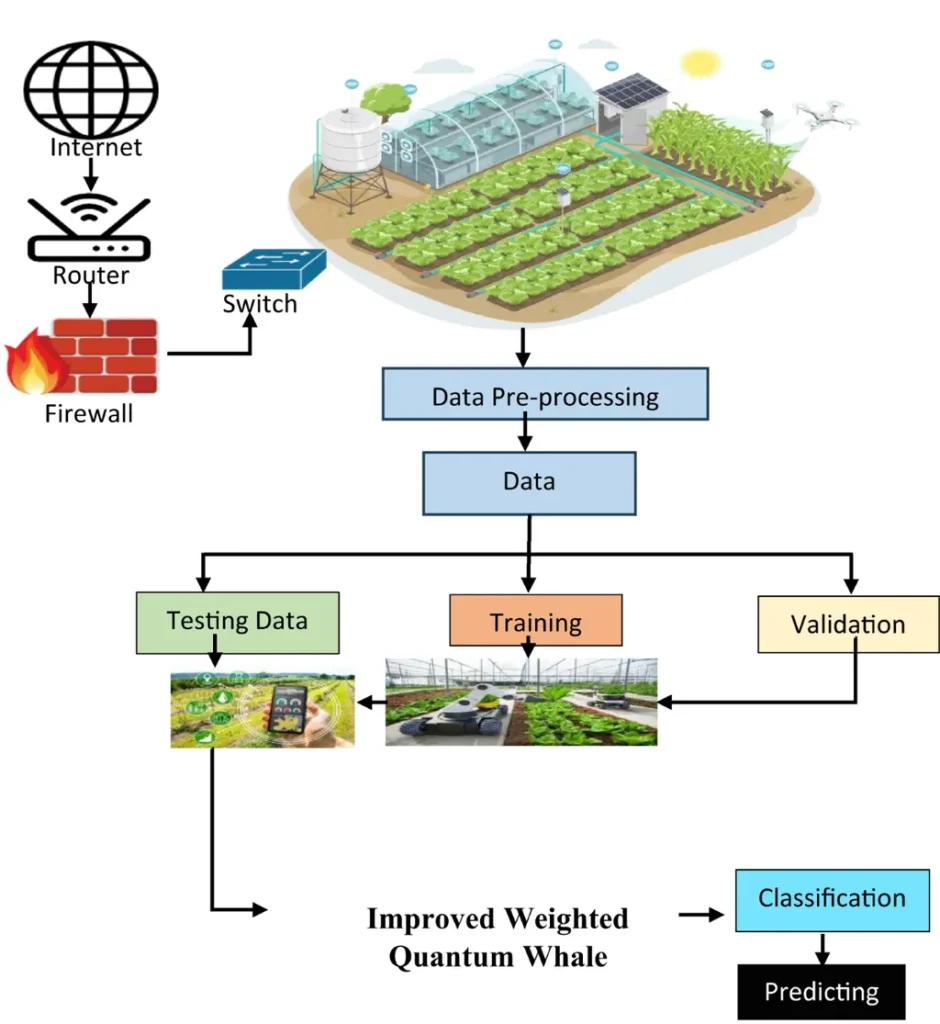In the rapidly evolving landscape of smart agriculture, researchers are constantly seeking innovative solutions to enhance efficiency, security, and sustainability. A recent study published in *Scientific Reports* introduces a groundbreaking approach that combines advanced optimization techniques with cutting-edge machine learning to address critical challenges in precision farming. The research, led by A. Menaka, a Research Scholar at Anna University, presents an Improved Weighted Quantum Whale Optimization (IWQWO) algorithm integrated with a Vision Transformer (ViT) to revolutionize environmental monitoring, intrusion detection, and resource management in smart agriculture.
Precision farming relies heavily on IoT-enabled sensors to collect real-time data on soil moisture, temperature, and nutrient levels. However, Wireless Sensor Networks (WSNs) often face issues such as high energy consumption, security vulnerabilities, and limited real-time data processing capabilities. The IWQWO-ViT framework aims to tackle these challenges head-on. “Our approach optimizes node clustering and routing efficiency, significantly enhancing energy efficiency and system security,” explains Menaka. This integration not only improves the accuracy of environmental monitoring but also ensures robust intrusion detection, reducing false alarms and enhancing overall network reliability.
One of the most compelling aspects of this research is its potential to transform commercial agriculture. By leveraging advanced IoT technologies, farmers can make data-driven decisions regarding fertilization, irrigation, and harvesting. The framework facilitates resource management and supply-demand prediction, enabling more efficient use of resources and reducing waste. Additionally, the integration of modern technologies like automated irrigation, drone-assisted monitoring, and plant disease detection can lead to significant cost savings and increased productivity.
The commercial impact of this research is substantial. Farmers can expect to see improved yields, reduced operational costs, and enhanced sustainability. The IWQWO-ViT model’s ability to process data in real-time and detect anomalies with high precision makes it a valuable tool for any agricultural enterprise looking to stay competitive in an increasingly data-driven industry.
As the agriculture sector continues to embrace digital transformation, innovations like the IWQWO-ViT framework are poised to play a pivotal role. The research not only addresses current challenges but also paves the way for future developments in smart agriculture. By combining quantum-inspired optimization techniques with advanced machine learning, this study offers a glimpse into the future of sustainable and intelligent farming practices. With further refinement and widespread adoption, such technologies could redefine the agricultural landscape, making it more efficient, secure, and environmentally friendly.

